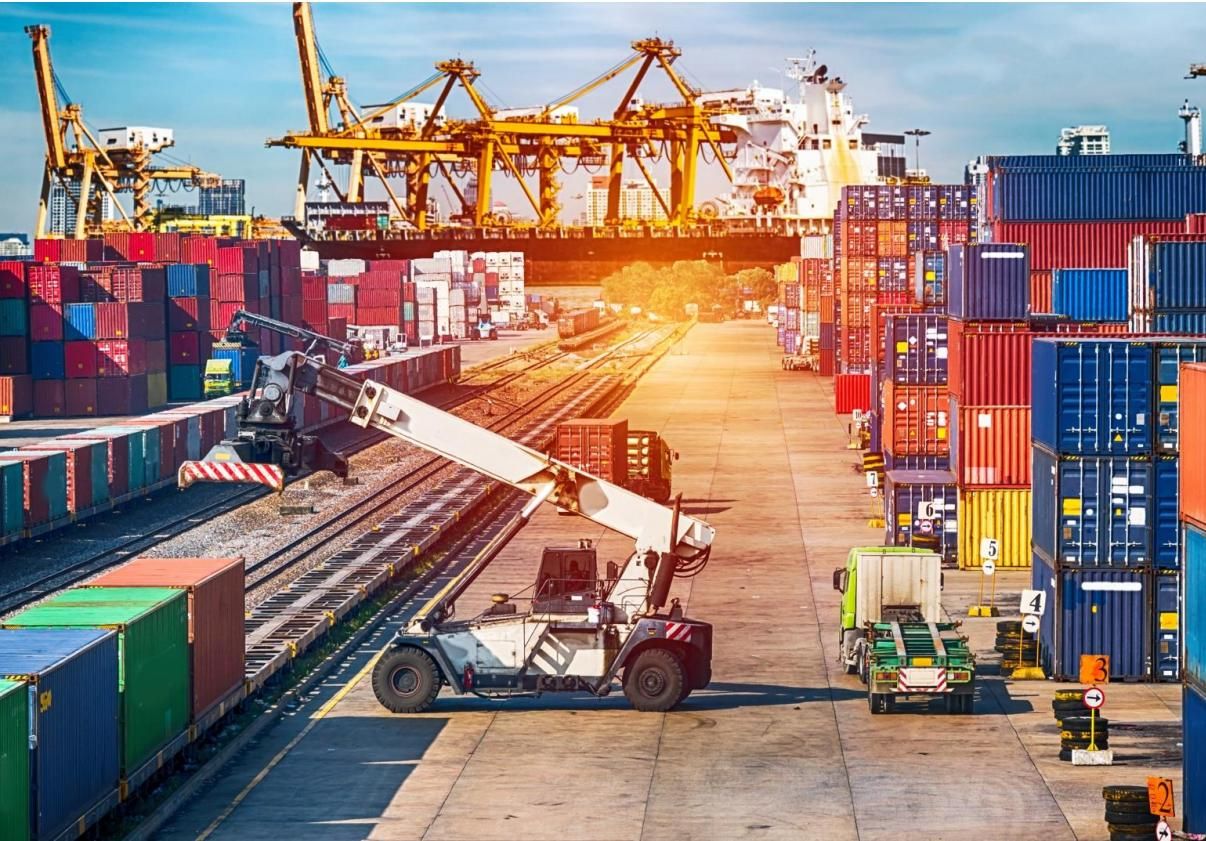TITR unveiling economic impact of a 14-fold increase in container shipments

By Zara Araz
The Trans-Caspian International Transport Route (TITR), also known as the Middle Corridor, is experiencing a remarkable surge in container shipments, reflecting a transformative shift in global trade dynamics. According to Kazakhstan Railways, container shipments along this vital trade route have skyrocketed 14-fold in the first seven months of this year compared to last year. This impressive growth highlights the corridor's increasing importance and potential economic benefits.
A Strategic Trade Corridor The TITR is a critical trade artery that connects Kazakhstan, Azerbaijan, Georgia, and Turkiye and extends into European markets. The Baku-Tbilisi-Kars (BTK) railway line, a cornerstone of this corridor, enables efficient and seamless cargo movement across this vast region. This network facilitates trade within these countries and links to Europe, positioning the Middle Corridor as a significant player in the global logistics landscape.
Surge in Freight Volumes Between January and July 2023, the Middle Corridor handled approximately 2.5 million tons of freight. The Kazakhstan Ministry of Transport predicts that this figure will swell to an astounding 4.2 million tons by the year's end. This 68% projected increase underscores the growing efficiency and attractiveness of the route for global shippers and traders.
Economic Benefits Enhanced Trade Connectivity: The surge in container shipments reflects a robust improvement in trade connectivity between Europe and Asia. The Middle Corridor provides an alternative to traditional maritime routes, offering shorter transit times and reducing logistical bottlenecks. This enhanced connectivity fosters increased trade volume and diversifies global supply chains.
Economic Growth for Participating Countries: Countries along the TITR—Kazakhstan, Azerbaijan, Georgia, and Turkiye—are poised to reap significant economic benefits. Increased freight volumes lead to higher revenues from transit fees and improved regional economic development. The trade growth also stimulates infrastructure investments and creates job opportunities, bolstering local economies.
Strategic Positioning and Competitiveness: For Europe and Asia, the Middle Corridor represents a strategic trade route that can enhance competitiveness. By providing a reliable and efficient alternative to traditional maritime routes, the corridor helps mitigate risks associated with geopolitical tensions or disruptions in other trade routes. This strategic positioning supports global supply chain resilience and offers businesses a competitive edge.
Investment Opportunities: The rapid growth in container shipments signals substantial investment opportunities in logistics and infrastructure. The expansion of the Middle Corridor necessitates continued investment in rail networks, ports, and logistical facilities, creating a fertile ground for private and public sector investments.
Environmental Benefits: Rail transport is generally more environmentally friendly compared to maritime shipping. By shifting a significant volume of freight to the TITR, there could be a reduction in greenhouse gas emissions and a lower overall environmental impact associated with global trade.
The 14-fold increase in container shipments along the Trans-Caspian International Transport Route marks a transformative development in global logistics. As the Middle Corridor continues to expand, it promises substantial economic benefits for the countries involved and contributes to a more resilient and diversified global supply chain. This growth not only highlights the corridor's strategic importance but also underscores the potential for further economic development and investment in the region.
---
Follow us on Twitter @AzerNewsAz
Here we are to serve you with news right now. It does not cost much, but worth your attention.
Choose to support open, independent, quality journalism and subscribe on a monthly basis.
By subscribing to our online newspaper, you can have full digital access to all news, analysis, and much more.
You can also follow AzerNEWS on Twitter @AzerNewsAz or Facebook @AzerNewsNewspaper
Thank you!
